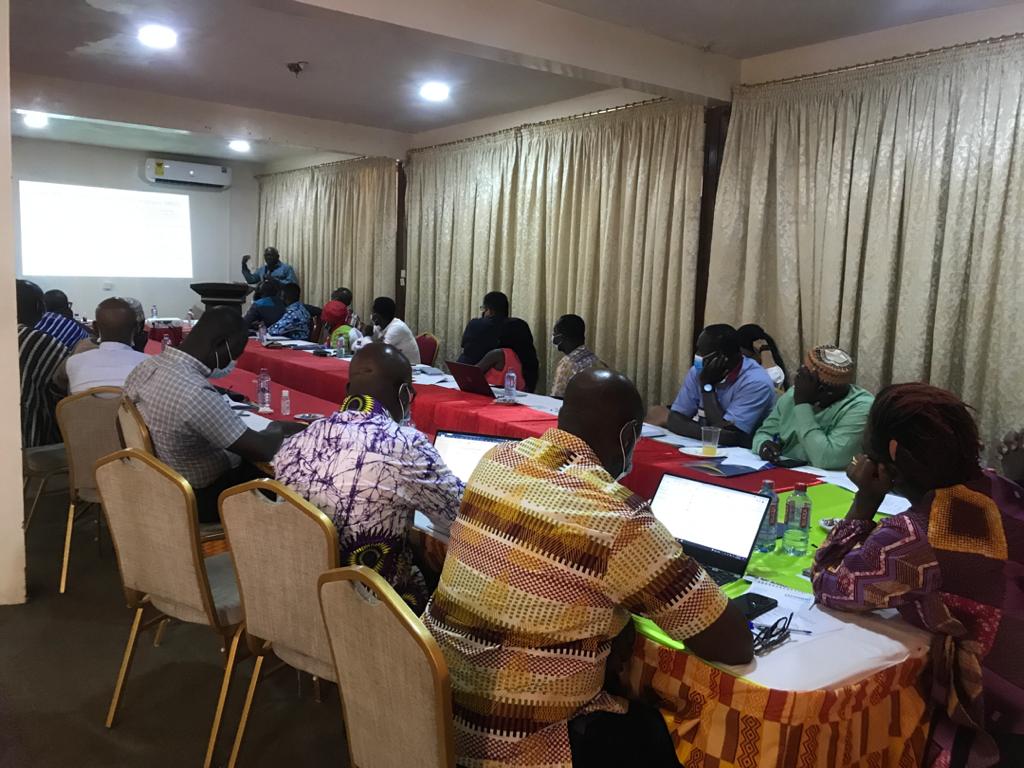
[ad_1]
Nana Ama Oppong-Duah, policy advisor at the John A. Kufuor Foundation, urges private companies in the agricultural mechanization sector to support the country’s rice farmers.
She says mechanization is a key service that rice farmers need if the country can become self-sufficient in rice production.
Nana Oppong – Duah says the foundation and other partners are working with the Ministry of Food and Agriculture to provide this much-needed service to farmers.
“We also have a mechanization component that we were talking about to be able to identify mechanization service providers and link them directly to rice and cassava producers to be able to have a more efficient value chain in the districts,” she explained. .
“The good thing about this is that we are working in partnership with private sector players like TATA, John Deere, Troto Tractor and of course some government agencies to be able to offer this service to farmers,” she added.
Nana Oppong-Duah was speaking to the media at a learning event on the Ghana Rice Project in Accra.
The event saw the unveiling of the results of research carried out in around 140 districts to identify gaps in local rice production following the implementation of the “Public-private partnership for competitive and inclusive development of the value chain of rice: Planting for food and employment (PFJ) Rice Chapter project.
The Alliance for a Green Revolution in Africa (AGRA) is funding the rice value chain improvement project to make Ghana less dependent on imported rice.

The Ministry of Food and Agriculture, the John A. Kufuor Foundation, Intervale Ghana, Hopeline Institute, Sparkx Farms and Volta City Farms are the implementing consortium partners.
“We train the service providers and map them according to the physical location of the farmers. Thus, we train service providers who are located in areas where farmers are located. We started with the farmers database. And thus, the farmers are aligned with the service providers in the clusters ”, explained Ms. Oppong-Duah.
“We are working with the Ghana Rice Interprofessional Organization (GRIB) because it is mainly the private sector. It is a measure of sustainability. Thus, we facilitate the process of meeting actors from the private sector. This meeting brings together partners so that we can learn, ”she added.
The policy adviser also noted the need for effective coordination in the rice sector to ensure availability of inputs and markets for farmers. “One of the things is coordination. How do we coordinate?
“Some farmers don’t even know that the input dealers are nearby. If there is rice in the neighborhood, how do you get to the miller? When we bring them together, synergy comes into play, ”she observed.
She also stressed the need for farmers to have access to improved seeds and finance. “We pleaded for the government to create a fund for the rice sector. And the disbursement for that has taken place, ”said Oppong Duah.
GRIB President Nana Agyei Ayeh identified difficulties related to land preparation and financing as key challenges that militate against efforts to boost local rice production in the country.
“The GRIB firstly pleads for regional planning. This is the foundation. If you are able to develop the land, this is where everything will be dictated, ”observed Nana Ayeh.
“Rice is a special crop. So before you start the rice, develop the soil. When I say land development, it’s different from, say, making cassava. With the rice you have to go there, clear the land, go deep and remove the stumps for good mechanization like combines and rooting machines and electric turners to work the land. Without it, there is not much you can do, ”he explained.
Regarding the high cost of loans, he said, “Money is very expensive in Ghana. We expect the government to do something about the interest rate. “As it stands, with the 25 percent interest rate, it’s very difficult.
“We are competing with people who get 5%. In Thailand, for example, their interest rate is so low. So how can you be a rice farmer here and compete with a Thai farmer? He asked.
Source link